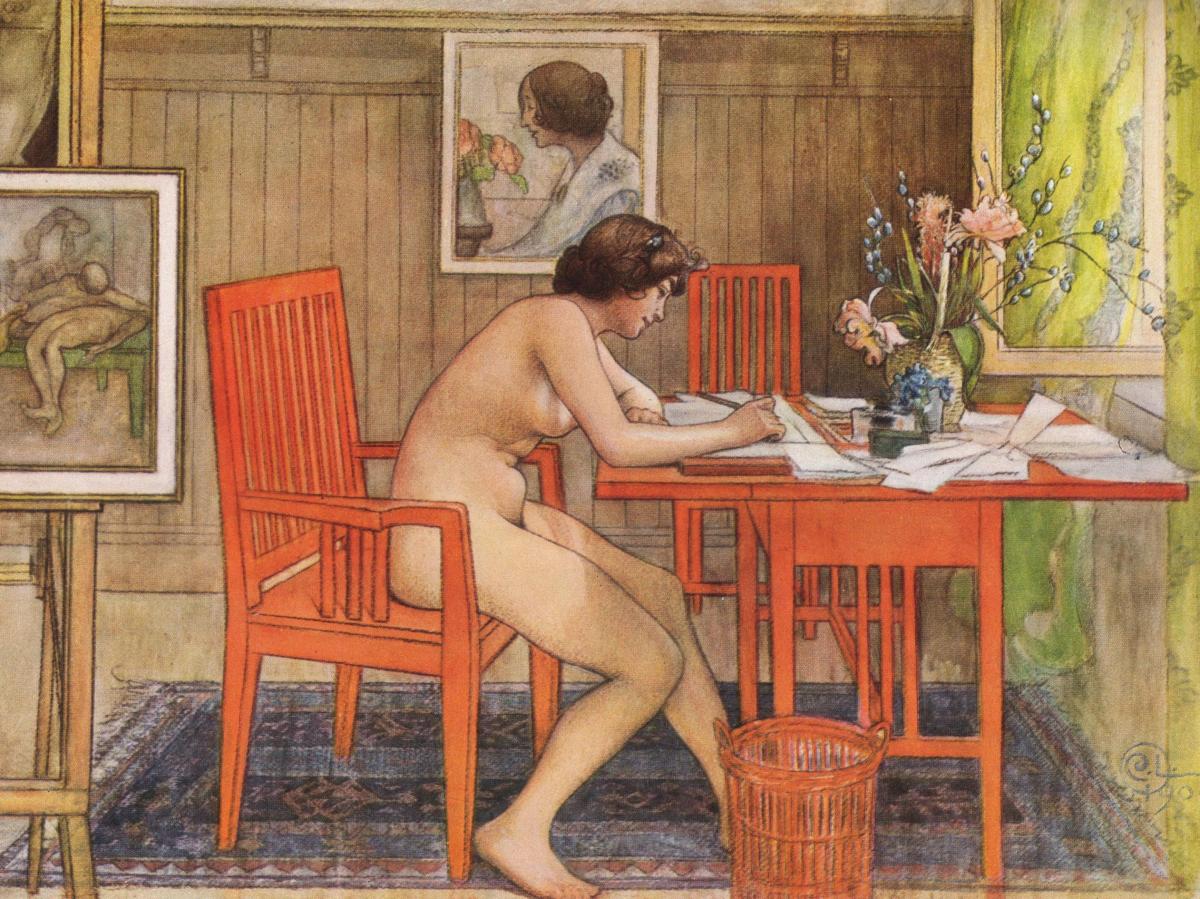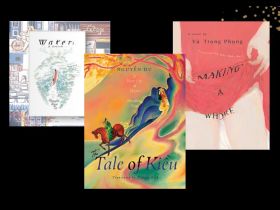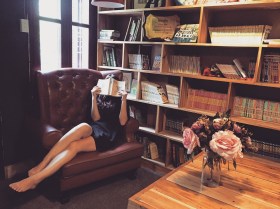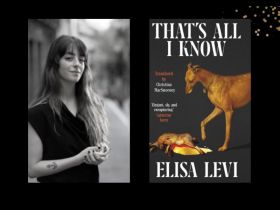Carl Larsson, Model writing postcards, watercolor, 1906, Image via Wikipedia
Be prepared to cobble together a living from a patchwork of income sources, according to the panel of five who tackled the subject at the Australian Society of Authors National Writers’ Congress last week.
On the panel moderated by writer David Marr, were David Day, writer, historian and ASA chair; author and chief storyteller at the Australian Writers’ Centre, Pamela Freeman; literary agent Benython Oldfield; editor and co-director of the National Young Writers’ Festival Lex Hirst; and journalist, essayist and researcher Ben Eltham.
Day said being a writer has gone from being a ‘tough gig to being a desperate gig’ in today’s market.
Freeman, the author of 30 books for children and adults, reported she makes about 30 per cent of her income from writing, with her Australian Writers’ Centre role making up most of the remainder. She also paid tribute to the support of her spouse who remains in a full-time job.
Writers need to have a ‘quiver full of arrows’, she said, adding a freelancer has to be able to do a number of things: speak in public, do workshops, teach writing, write articles, edit manuscripts, assessment..’.
For Eltham it’s his part-time post-doctoral fellowship at Deakin University that pays the rent, rather than his digital media writing. ‘It’s that steady, fortnightly salary that enables me to support my other writing,’ he said.
Hirst said emerging writers might have two to three days part-time work, working in a bar, a bookshop or as a barista. They may also ‘scrape together an existence’ applying for grants of $2000 to $3000. ‘They generally write for a variety of literary organisations, literary magazines particularly. They do a lot of panels and workshops.’
‘None of these pay very well and it’s a huge juggling act and I think the biggest thing is finding writing time in amongst all of this.’
Others go into marketing, copywriting or editing roles but that can present issues. ‘I worry about having too many passion roles and the emphasis that takes off writing,’ said Hirst.
Need some inspiration? Here are nine ways to make writing pay.
- Look beyond the advance
Oldfield said the largest advance paid to one of his clients by an Australian publisher is $50,000, with the average $10,000 to $25,000. Even novelists who have published one or two books can be offered advances as low as $2000. ‘To keep publishing them they’ve dropped their advances sometimes – exponentially,’ he said. The advance for Freeman’s last children’s picture book was $3000, the same amount as she was paid for her first book 21 years ago.
Oldfield suggested authors look for additional income within the film, television and documentary industry. ‘If you sell an option in any of those areas you can get 2.5 per cent of the budget of the film, television or documentary just for the author.’
Authors such as Benjamin Law and Craig Silvey have picked up consulting and screenwriting gigs related to their books, he said. Marr said film rights for his book Dark Victory have proved a ‘nice little earner’ when they’ve been renewed every few years for the past decade.
Stage rights for a story can yield 5-10% of box office for authors, said Oldfield.
- Get paid for events
Hirst said it makes sure the National Young Writers’ Festival pays its writers for each event. Day said the ASA has set rates for authors appearing at a library or festival event. Anyone being asked to appear for nothing can refer organisations to the ASA website, he said.
- Support minimum pay campaigns
Pay the Writers is a group where writers share information about pay rates. Eltham said it is now working with a number of writers, the Media Entertainment and Arts Alliance and Writers Victoria to look at minimum rates campaigns.
- Explore audio opportunities
Oldfield said audio is growing 60 per cent year-on-year in the US. Audible opened an office in Australia this year, a development that he said is making Bolinda sit up and take notice. However, he added: ‘We’re still in the old paradigm of receiving 25 per cent net receipts for that audio which can end up being a buck per download when it filters back from Audible to publisher and to the author. It’s a bit like the ebook space. It’s going to grow and grow so we need to make sure we’re getting better royalties there.’
- Revive your back list
Day said authors can digitise existing books and put them on the ASA’s Authors Unlimited website. He said the ASA is talking with an internet retailer with the aim of getting them to promote the books on Authors Unlimited. “So Australian works, back list titles that you’ve almost forgotten about…can get a second wind and produce extra income.’
- Read the contract
Day said the ASA is working to get rid of some of the ‘egregious’ contracts used by publishers, particularly for first-time authors. Freeman successfully got her publisher, Hachette, to change its boilerplate contract, which was written overseas, for all Australian authors. It removed a rights reversion clause in the new contract that effectively meant the rights wouldn’t revert to the author if the publisher held just one of their books in its warehouse.
- Negotiate royalty rises
Oldfield said suggested publishers can be happy to negotiate a royalty rise from 10% up to about 12.5% from about 7000 copies onwards. Day said the ASA is tackling royalties on ebooks (currently 25% is industry standard). ‘We’re trying our darnedest to pressure publishers to do the right thing by their authors and to give them a fair share of ebook prices,’ he said, adding 50% was reasonable.
- Don’t sign the three book deal
‘That’s a good way to cap your income,’ said Oldfield. ‘Do the first book. Make it work. Ratchet up the next one.’
- Try ghost-writing
Hirst said the ‘bread and butter’ of the big publishing houses comes from big labelled non-fiction works and there can be an opportunity in ghost-writing work. ‘I know a lot of young writers who ghost write for some of the online literary journals and get decent money. It’s definitely a different world for non-fiction writing.’





